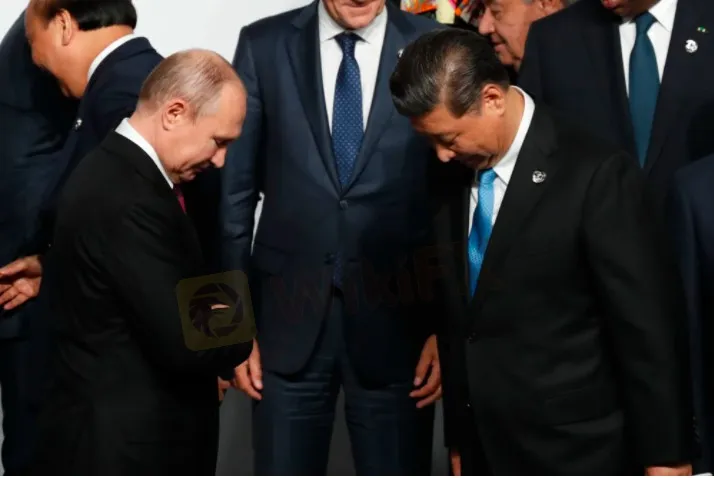简体中文
繁體中文
English
Pусский
日本語
ภาษาไทย
Tiếng Việt
Bahasa Indonesia
Español
हिन्दी
Filippiiniläinen
Français
Deutsch
Português
Türkçe
한국어
العربية
Chinese State Media Is Pushing Pro-Russian Misinformation Worldwide
Abstract:Ad buys show a pattern of targeting cheaper markets.
Beijing has spoken of its neutrality and desire for peace in the conflict between Russia and Ukraine—but Chinese state-affiliated media outlets have kept on spreading Kremlin propaganda, even as European Union countries and social media platforms have moved to ban Russian state media due to misinformation.
According to analysis conducted by CNN, almost half of the most shared posts on Weibo from 14 Chinese state media outlets are strongly pro-Russia. Research by Maria Repnikova and Wendy Zhou shows that social media opinion on Chinese sites leans the same way. But thats not enough for Beijing. Chinese state media is actively working—and paying—to spread pro-Russia misinformation on Western social media platforms like Twitter, Facebook, and TikTok.
The current line China is trying to push onto Western social media platforms is a well-developed lie about U.S. bioweapon experiments in Ukraine. This is a propaganda line well developed in Russian media—but Beijing isn‘t promoting it to help Moscow as much as it is to just smear the West. Since early 2020, China has promoted claims that COVID-19 really originated outside of China and created a fantasy story of U.S. military experimentation at Fort Detrick that created the virus. This claim, heavily normalized in China, is a convenient distraction from China’s own failings in allowing the virus to spread in Wuhan. As omicron challenges China‘s containment system, blaming the West is a useful distraction—but it’s also become a routine exercise for Chinese media.
One of the most notable outlets involved in foreign propaganda is CGTN, an English-language cable TV news service owned by Chinese state media China Central Television (CCTV), under the control of the Chinese Communist Partys Publicity Department. Although some recent reports have discussed Russian bombings, CGTN has generally backed Russian propaganda by calling the invasion “special military action” and directly publishing quotes from Sputnik and other Russian sites, such as “Putin says Russia has no ill intentions towards its neighbours.”

Disclaimer:
The views in this article only represent the author's personal views, and do not constitute investment advice on this platform. This platform does not guarantee the accuracy, completeness and timeliness of the information in the article, and will not be liable for any loss caused by the use of or reliance on the information in the article.
Read more

How to Automate Forex and Crypto Trading for Better Profits
Find out how automating Forex and crypto trading is changing the game. Explore the tools, strategies, and steps traders use to save time and maximize profits.

Is Your Zodiac Sign Fated for Stock Market Success in 2025?
The idea that astrology could influence success in the stock market may seem improbable, yet many traders find value in examining personality traits linked to their zodiac signs. While it may not replace market analysis, understanding these tendencies might offer insights into trading behaviour.

Trading Lessons Inspired by Squid Game
The popular series Squid Game captivated audiences worldwide with its gripping narrative of survival, desperation, and human nature. Beneath the drama lies a wealth of lessons that traders can apply to financial markets. By examining the motivations, behaviours, and strategies displayed in the series, traders can uncover valuable insights to enhance their own approach.

Challenge Yourself: Transform from Novice to Expert
From a forex novice to a trading expert, all it takes is this one opportunity! Join us for the Forex Beginner's Advancement Journey challenge and unlock your potential! Here, if you're a beginner, participating in the event and posting on selected topics will not only deepen your understanding of forex basics and help you advance but also earn you a Learning Encouragement Award. For those with some experience in forex, discussing insights under the event topics will allow you to exchange experiences and share techniques with like-minded peers, while also having the chance to win a Perspective Sharing Award! Come challenge yourself and break through the limits of forex trading together!
WikiFX Broker
Latest News
BI Apprehends Japanese Scam Leader in Manila
Bitcoin in 2025: The Opportunities and Challenges Ahead
Join the Event & Level Up Your Forex Journey
Is There Still Opportunity as Gold Reaches 4-Week High?
Bitcoin miner\s claim to recover £600m in Newport tip thrown out
Good News Malaysia: Ready for 5% GDP Growth in 2025!
How to Automate Forex and Crypto Trading for Better Profits
FXCL Lucky Winter Festival Begins
Warning Against MarketsVox
Is the stronger dollar a threat to oil prices?
Currency Calculator






